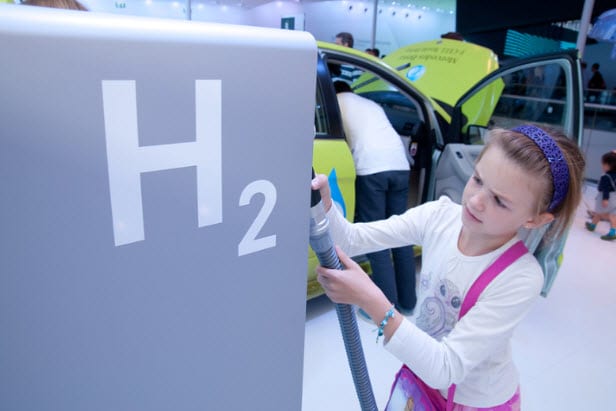Air Liquide focused on the long term for hydrogen fuel
December 13, 2013Success of hydrogen may not be found in short term initiatives
 Air Liquide, a leading producer of chemical gases, is well known as an aggressive advocate when it comes to hydrogen transportation. The company has aided in the establishment of a hydrogen fuel infrastructure in many parts of the world and continues to do so in prominent countries throughout Europe. Hydrogen-powered vehicles are expected to hit the global market in 2015 and many countries are still lacking the sufficient infrastructure needed to ensure the success of these vehicles. Air Liquide believes that hydrogen transportation will find success in the long term rather than immediately.
Air Liquide, a leading producer of chemical gases, is well known as an aggressive advocate when it comes to hydrogen transportation. The company has aided in the establishment of a hydrogen fuel infrastructure in many parts of the world and continues to do so in prominent countries throughout Europe. Hydrogen-powered vehicles are expected to hit the global market in 2015 and many countries are still lacking the sufficient infrastructure needed to ensure the success of these vehicles. Air Liquide believes that hydrogen transportation will find success in the long term rather than immediately.
Air Liquide highlights cost of infrastructure
According to Air Liquide, countries like Germany and France need approximately 1,000 hydrogen fuel stations in order for their infrastructure to be considered viable. This requires an investment of approximately $13 billion. Developing an infrastructure is considered a costly endeavor, which is why many counties have been so slow to show any real support for such an initiative. This issue is one of the reasons that Air Liquide has focused on long term goals. The lack of government support may make any short term initiative unsuccessful.
There may be no other option apart from hydrogen
The company believes that transportation’s future lies with fuel cells. According to Pierre-Etienne Franc, head of the Advanced Business and Technologies unit of Air Liquide, the world must adopt fuel cells “or let the planet burn.” Franc notes that embracing fuel cells may be a foregone conclusion as the world does not have access to enough biofuels and batteries do not provide enough energy autonomy to be considered viable. While hybrid vehicles have helped de-carbonize transportation, Franc suggests that they are not adequate for any long term emissions reduction endeavor.
Air Liquide promotes the use of hydrogen fuel in various industries
While Air Liquide is working to help establish a hydrogen infrastructure in many parts of the world, the company is also looking to promote hydrogen to industrials beyond transportation. Fuel cells have long been popular in industrial sectors, where they are used to provide electrical power to manufacturing facilities and mining operations in some parts of the world.

 With over 15 years of reporting hydrogen news, we are your premier source for the latest updates and insights in hydrogen and renewable energy.
With over 15 years of reporting hydrogen news, we are your premier source for the latest updates and insights in hydrogen and renewable energy.